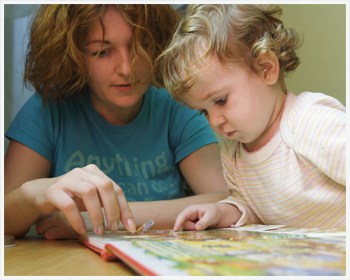How To Instill Leadership Skills In Your Child’s Future
The role of a parent can often become quite hectic with the demands of daily life. Along this daily journey, many parents don’t realize their influence on their children’s minds. Our children watch as we balance these demands and lead the family through each day.
While leadership skills can come naturally, children learn lessons that significantly impact them later in life. The right words at the right time can make all the difference.
Here are five ways to help you instill the right leadership skills in your child’s future:
Be A Good Role Model
Be aware that your child is watching, and allow them to see how well you balance your business and personal demands each day.
You Win Some, You Lose Some
Great leaders handle failure as gracefully as they handle success. Emphasize perseverance. Your children must understand that success as a leader can be achieved through persistence, hard work, and a good heart.
Encourage Them To Talk
Allow your children to speak for themselves with servers at a restaurant, a grocery store clerk, or the lifeguard at the swimming pool. Through your guidance and allowing them to speak for themselves, this will help them gain confidence in themselves.
Bookworms Become Leaders
Studies have shown that children who read want to know more and ask questions to delve deeper into various subjects. This inquisitive side of a child is the best foundation for a leader’s growth.
Optimism Beats Pessimism – Every Time
Your child should be aware that optimism is connected to success. Reward optimism, especially when a goal is achieved.
In small ways, today’s leaders can prepare younger generations for their future as business leaders. These suggestions will create better leaders to help children perform better in school and develop better personal relationships.
The Benefits of Male and Female Teachers in Early Education
The Benefits of Male and Female Teachers in Early Education
Early childhood education refers to the learning that occurs from birth to age eight, including daycare, preschool, kindergarten and up until second grade. Safe and nurturing early childhood education programs are crucial to help children develop physically, socially, emotionally, and intellectually. While the early education workforce largely consists of female teachers, having the opportunity to learn from a male teacher can be very beneficial as well. Here’s why:
- Male and female teachers have different viewpoints. Children are sponges and absorb so much information in daycare and school. When both male and female teachers are present in early childhood education programs, children have the advantage of learning from both of their viewpoints and incorporating that knowledge into their everyday lives. This diverse learning environment can greatly benefit students as they grow.
- Male teachers can serve as role models. In the early childhood education setting, teachers are kind, caring, and patient, among many other things. Having a male teacher who exhibits these personality traits is ideal for both boys and girls. Being a positive male role model helps all students, but specifically can be helpful for those who don’t have a father figure in the home.
- Learning from a male teacher can help break down stereotypes. Seeing male teachers in the classroom is a great way to show children that they can be anything they want to be in life. In addition, early childhood educators who are male can also show students (particularly boys) that being empathetic, emotional, and caring is a good thing.
- Males have a different way of teaching. Male teachers are more likely to have an active classroom and use humor to engage students. While studies have shown that students learn just as well with male and female teachers, some students may benefit from this type of classroom.
Many parents appreciate the opportunity for their children to learn from a male teacher in the early childhood education setting. If your child is placed in a classroom with a male teacher, consider yourself lucky and enjoy the year!
Read To Your Child… Infant To PreK
 Did you know that reading to your children at a very early age often prepares them for success in Kindergarten and beyond? Yes, a simple and effective way to prepare our children for formal schooling is to read together on a daily basis. Children who are routinely read to from infant, toddler and Pre-K are much more academically prepared to learn than children who were not read to – AND – children who have been routinely read to enter kindergarten prepared to learn from the very first day! There is no to catch them up on skills.
Did you know that reading to your children at a very early age often prepares them for success in Kindergarten and beyond? Yes, a simple and effective way to prepare our children for formal schooling is to read together on a daily basis. Children who are routinely read to from infant, toddler and Pre-K are much more academically prepared to learn than children who were not read to – AND – children who have been routinely read to enter kindergarten prepared to learn from the very first day! There is no to catch them up on skills.
So how does reading aloud together prepare our children for kindergarten? When we read, think about all words that your child is hearing and beginning to understand before they enter the kindergarten classroom. Studies show that the number of vocabulary words a child knows upon entering kindergarten is an indicator of academic success in the years ahead. In addition, reading to our children also develops their listening skills and attention spans which is very important to success in a classroom environment.
Positive Words Do Make A Difference!
With a new year upon us this is the perfect reminder to cherish the good that surrounds us with POSITIVE words and behaviors – and there is no better place to start than as a parent. Parenting is a balancing act that requires control – often tangling with the fine line of encouragement and exasperation. Positive words that you speak over your kids can help instill confidence and control in your WHOLE family in both the short term and long term.
Words spoken can become meaningless when they are not exhibited in an action. However, words alone do have great power – both positive and negative. We can all make a choice to speak in a positive way to everyone around us – especially to our children and all young ones that we encounter throughout the day. This behavior is one that they will begin to imitate – even though they may not recognize they are doing so. You never know how the words of encouragement that you speak today will affect your kids to carry with them for the years ahead.
Be intentional in the morning – and set aside specific words that you are going to speak to kids. Write them down if you have to, or simply use your favorite word of encouragement that brings a smile to YOUR child’s face – over and over again. The more you can follow up these words with actions of affirmation – the more power these words will have. Have fun and spread the kindness beyond your home – you’ll be amazed at the goodness that will follow!
Holiday Giving Is The Perfect Lesson In Love
The holiday season is the perfect time to teach our children the beauty of giving back to others. At a time when so many people are focused on getting something – why not take a moment to guide your children in the merit and blessing of giving!
Here are some ideas to help you get started:

Bake As A Family. Although having kids in the kitchen with mixers, cookie dough and measuring cups filled with powder may not be the most care-free option for a mother – this time together can be the best time for bonding and may even turn into a family tradition! As a family, deliver these cookies to your neighbors, your local fire and police station, and even have some packaged at the door for the frenzied postal and delivery drivers who are working hard to get your packages to you on time for the holiday season
Sponsor A Family. There are local organizations that can help you find a family that needs your help this holiday season. Include your children in buying gifts. Let them pick out what “they think”is the best gift idea – and you can supplement these choices with those that you believe are needed and will ensure the holiday is filled with joy for this family in need.
Help The Homeless. Even though this is the time of year when many organizations focus on the homeless community, you can pack gift bags for your family to hand out during your daily travels. Choose practical items such as socks, gloves, hats, snacks, water bottles, gift cards for food and some interesting items that will surprise them! This is something that can be done all year long – your kids will really enjoy doing this – and hopefully it will become a tradition with their own family.
Four Ways Your Child Can Help YOU Prepare For The Holidays!
The holidays can bring a lot of cheer to the home, but sometimes stress can enter the door now and then as well! The holiday activities tend to get a little tougher when the children are out of school. When there’s too much to do and not enough time, it’s time to get the whole family pitching in to lighten the load. Kids are often so excited and eager for the big day that they’ll gladly help with chores. We’d like to help you with some ideas to “de-stress as you prep” this Christmas season.
1. Clean Their Room
The holiday season is a time for entertaining family and friends. This is the perfect time to have your children clean their rooms, as well as clear out all clutter to make way for new toys. This chore includes the cleaning out closets, clearing out under the beds, and taking care of any items that are not being used. This task may require guidance from an older sibling or a parent. Use this as a time to encourage generosity, thankfulness, and let them choose to donate items to local shelters for families in need.
2. Create Christmas Cards
Now is the time to get out the art supplies! Gather the kids around a table and talk about all of the people in your lives that are so special and would love to have a personal card delivered. Encourage your youngsters to make holiday cards for their own sending to friends and family. If you have some pretty card stock or construction paper with markers and stickers – this can become quite an exciting “chore” for children of all ages. If this it too much – why not have your children help you stuff envelopes and give them a lesson on where a stamp is placed on an envelope as well as return address labels. This is something most kids don’t know, and will benefit from this teachable moment!
3. Create Gift Tags
A homemade gift tag makes every gift that much more special. Gather up your art supplies and show your kids hows to create a simple or fancy gift tag. You will need construction paper, kid-safe scissors, a hole punch, twine or ribbon, markers, stickers and even glitter (if you can handle the mess!) The gift tags can be cut into all sorts of shapes and sizes. Let their imagination go wild…You can never have too many gift tags!
4. Help With Light Cleaning
When you have company coming over, it can be fun to involve the whole family as a cleaning crew to prep the home for the new arrivals. Children of all ages can be given safe tasks for cleaning. In fact, even the littlest in the bunch will enjoy the task of putting things back where they belong. Let them help dust, sweep, wipe down counters, and straighten the pillows on the couch. With everyone working together to make the house tidy, you’ll get the work done faster. Kids usually enjoy pitching in to help with these important holiday chores, too.
When you include your children it not only lightens your own load, but it gets them involved and makes them feel like they are a part of the whole holiday process. There are many teachable moments when you work together, and when kids feel important and needed – the holidays get that much brighter!
Helping Your Child Adjust To Preschool
 A new school year can be hard on your little one, and for that matter – the parent! If you are new to this routine, and your preschooler is struggling with this adjustment, don’t worry – we’ve all been there. There are few things in life that are more difficult than leaving your child crying in the door of a classroom, even though in your heart and mind you know that this is temporary and necessary for all ages! Take a look at these tips to help you and your child transition through this to a fun and healthy school year:
A new school year can be hard on your little one, and for that matter – the parent! If you are new to this routine, and your preschooler is struggling with this adjustment, don’t worry – we’ve all been there. There are few things in life that are more difficult than leaving your child crying in the door of a classroom, even though in your heart and mind you know that this is temporary and necessary for all ages! Take a look at these tips to help you and your child transition through this to a fun and healthy school year:
It Begins With YOU!
Believe it or not, if you haven’t prepared YOURSELF for this major change in your daily life, your child can and WILL pick up on this. Even if you are nervous (as you most of us are) make sure that you exude a sense of calm and confidence – and watch what you say to friends and family – especially when your little one is near.
Consistency Is Key
Children need to know what they are doing, where they are going, and what you are expecting of them. Be sure to set up a routine – even for the youngest of the bunch. This will not only ease the chaos in the household but will also boost awareness of the routine that is exhibited in the classroom. Here’s a simple, yet effect morning routine that can easily be adapted to all age group: eat breakfast together, prepare a lunch or discuss the school lunch menu for the day, set a spot for school gear and have each child gather their things, double check for any missing items, and happily leave the house for a day of learning and friendship!
Leave With Confidence
Once again, when you leave your child in the classroom, they can feel your anxiety. Be sure to hug and kiss your child goodbye, assure them that you will return shortly, and walk away without any lengthy goodbye. Don’t sneak out without saying goodbye, this only makes things worse. You don’t want your child to feel abandoned or tricked. You also want them to know what to expect, including a loving goodbye.
One thing to remember is that kids adjust to new environments on different timelines. If you notice that your child is having a harder time than the others – don’t worry, this process can take a few weeks. Let them adjust at their own pace, your gentleness and patience will help this life lesson be a wonderful experience.
New Twists On The Old Classic Games
 There are certain board games or video games that we’ve all grown up loving and want to revisit or share with future generations. Unfortunately, they may be hard to track down, very expensive or no longer compatible with today’s technology. Thankfully, there are some great newer versions of the games we love with added elements that will surprise you! Next time you have family game night or downtime, try these new twists on old classics:
There are certain board games or video games that we’ve all grown up loving and want to revisit or share with future generations. Unfortunately, they may be hard to track down, very expensive or no longer compatible with today’s technology. Thankfully, there are some great newer versions of the games we love with added elements that will surprise you! Next time you have family game night or downtime, try these new twists on old classics:
Nintendo Switch: If you have fond memories of grabbing your GameCube and all of the chunky game cartridges that were paired with it, you’ll love this updated gaming system. Play newer games or the old classics on this portable handheld system and you’ll never have to worry about lost games and tangled cords.
Updated board games: Many board games like Monopoly, The Game of Life, and Scrabble still contain the same rules and setup, but with new electronic updates. For instance, Scrabble now comes with an electronic system for counting points on letters, making gameplay faster and easier for players to keep track of their scores. Monopoly has an updated version with an electronic banking system, making money-handling easy for both players and the parents keeping track of game pieces!
Phone versions of games: You probably know about Candy Crush and Flappy Bird, but did you know you can play your favorite arcade games on your phone? Arcades may be hard to come by, and you may feel a little out of place in one now. Thankfully, you can play games like Pinball, PAC-MAN, Frogger and more, without ever having to set foot on a sticky arcade floor. Many of these games are free and allow you to compete with other high scores, making for some friendly, fun competition!
How To Reduce Screen Time For Your Children
In a society where technology prevails, it can be tougher than ever to convince your child to voluntarily look away from the screen. This doesn’t just mean the television – most households now have multiple smartphones, ipads and laptops.
now have multiple smartphones, ipads and laptops.
In a recent report by Common Sense Media, it was found that 42% of children 8 and younger have their own tablet devices, and spend an average of 2 hours and 19 minutes a day looking at screens. Tablets and phones can be great educational tools, but if used too often they can also disrupt sleep schedules and even impact expressive speech and the ability to recognize emotions. Here are the top ways to reduce screen time:
- Set An Example: Though it may be tough moving away from screens yourself, it is one of the most impactful ways to reduce screen time for your child. Younger children learn by observing, and making an effort to put down your phone, computer or tablet will set a good example.
- Create Rules and Follow Them: By setting rules for your child, they will begin to understand when it’s time for screens and when they have to step away. A good place to start can include: no television during dinner, no digital device with a screen before bed, and setting designated times that the kids can enjoy a device with a screen. Abiding by these rules may be harder on you than the child. Think about when you’re busy and you need to keep your child occupied — what do you do? Most of us send hand them a tablet, stream their favorite show and head off to do our chores. However, if you’ve set a rule for no screen time, it is important to stick to it.
- Provide Alternate Activities: If your child is bored, they’re going to want to reach for a device for entertainment. Engage with them by going outside, playing games or reading books – you’ll create fond memories and a desire for other forms of fun!
AAA-CHOO! Keeping a Healthy Home

Even a seemingly clean house is still susceptible to viruses and bacteria that can affect the health of you and your loved ones. Fortunately, there are ways to combat these hidden dangers. Below are a few examples of the germiest places in your home and easy solutions for keeping them clean and sanitary.
The Kitchen
Towels, dish cloths, sponges and countertops where food is prepped – all these areas are hot spots for germs. To combat them, put sponges in the dishwasher with the drying setting on, or zap wet sponges in the microwave for 1-2 minutes to kill bacteria. Use a fresh dish cloth every day, and sanitize in the washing machine with hot water in between uses. Wash out the sink with soap and hot water after preparing meals and washing dishes, and sanitize the sink, drain and counters with a bleach solution at least twice a week.
The Laundry Room
Did you know that there is a tenth of a gram of feces in every pair of soiled underwear? Because of this, underclothing should be washed separately in 150℉+ hot water. Move them to the dryer as soon as the wash cycle is done so germs don’t get a chance to multiply, and run it until everything is completely dry, which usually takes about 45 minutes. When you’re done, always wash your hands with soap and water and use a bleach solution on the washing machine’s tub.
The Bathroom
Your toilet bowl is not the only source of germs and bacteria in your bathroom. The flush handle on your toilet is often forgotten, and is one of the easiest ways to transfer sickness from person to person. The best way to cut down on bathroom germs is with weekly disinfecting of the floors, tub/shower floor and sides, and the toilet (including the flush handle).






